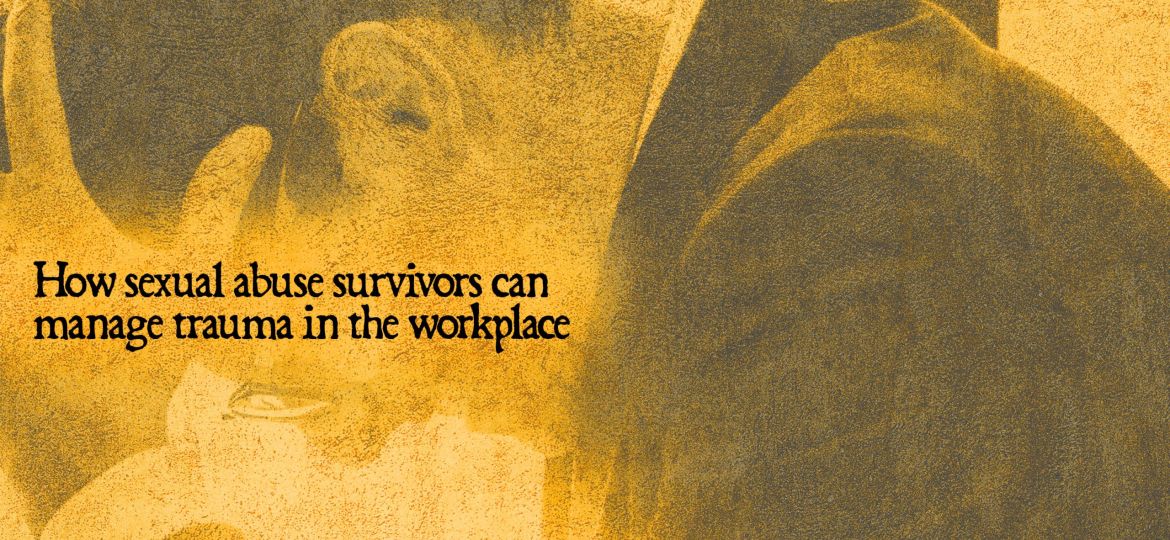How Sexual Abuse Survivors Can Manage Trauma in the Workplace
Untreated trauma can manifest itself in all aspects of a sexual abuse survivor’s life, from friendships to relationships and even the workplace.
What are some typical signs of sexual abuse trauma?
The experience each survivor has is unique to them; there is no single way in which trauma impacts someone. However, here are some common manifestations of trauma that many people experience:
- Anxiety, either generally or about specific scenarios
- Depression
- Flashbacks and other difficulties concentrating
- Mood swings
- Panic attacks
- Feelings of shame and hopelessness
What does trauma in the workplace look like?
For survivors who are living with their trauma, and who are perhaps still processing and working through their experiences, it is not easy to simply leave their baggage at the door when they go into work – survivors can’t just “turn it off.”
And so, for employees who are suffering with the effects of their trauma, that can manifest itself in the workplace by:
- Struggling to meet deadlines and other demands of their job
- Difficulty coping with stress at work, even “minor” challenges
- Having trouble with authority, whether that be their direct manager or someone else in a supervisor or leadership role
- Calling in sick often
There are other ways that survivors show this trauma in the workplace, like “pushing through” their struggles to get through work, but then crashing after work or engaging in unhealthy coping mechanisms. This cycle often leads to burnout and fatigue, which reduce a survivor’s ability to be effective in their workplace.
How can trauma affect survivors’ workplace relationships
Multiple academic studies have shown that survivors who still carry their trauma suffer long-term impacts on their relationships, including in the workplace. They may find it challenging to collaborate on work projects or may feel like an “outsider” or feel like they don’t belong. This can create challenging social dynamics with colleagues and management.
Researchers also found that survivors often have a tougher time asking for support, as well as receiving it.
What are ways that employers can make a workplace safe and accommodating to survivors?
Although survivors often wish to deal with their trauma outside of the workplace, employers can take steps to help support survivors.
According to the Anti-Human Trafficking Intelligence Initiative, there are multiple ways that employers can help survivors in the workplace:
- Cultivate trauma awareness and sensitivity to those dealing with trauma, as well as provide trauma-informed trainings
- Provide tools to help employees recognize the signs of trauma
- Create a generally supportive work environment
- Offer employees who are dealing with trauma assistance, like confidential counseling programs or therapist referrals
- Provide reasonable accommodations to survivors, like flexibility with schedules, ability to work remotely from time to time, etc.
What are survivors’ rights in a workplace?
All 50 states, including the District of Columbia and the federal government, have laws that prevent discrimination in the workplace based on a survivor’s mental health status.
In fact, some states, like Minnesota, require employers to make “reasonable accommodations” for employees.
What are workplace resources a survivor can seek?
Many employers offer some type of mental health support through their health insurance plans. As a result, one study reported that 60% of employees had access to mental health care through their insurance.
Through referrals granted by an HR department or other resources in a workplace, survivors can access various types of care for themselves.
If society can work together to become trauma-informed and aware of trauma’s impacts, we can improve the work environment, which will lead to improved efficiency, collaboration, and an overall work culture that benefits everyone.


